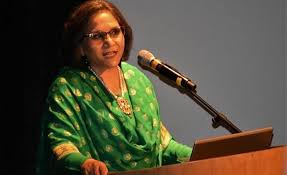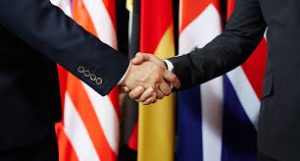To combat coronavirus, Pakistan is taking pages from China’s playbook

Beijing: As the fifth most populous country in the world, Pakistan has so far had a moderate number of Covid-19 patients.
The government has been ramped up awareness campaigns, locked down parts of the country, imposed curfews and called on volunteers to help, as parts of its efforts to contain the spread of the novel virus, but it acknowledges that the nation is facing a steep uphill battle.
“It is undoubtedly a huge challenge for us for a very simple reason. We are a developing country.” said Naghmana Alamgir Hashmi, Ambassador of Pakistan to China, during a recent interview with CGTN.
Ambassador Hashmi said that, in the example of implementing social distancing, in heavily populated cities, sometimes more than 10 people live in one small house, and a huge portion of the nation’s labour force depends on daily wages, which requires the government to find a balance between allowing businesses to stay open to a degree, and taking public health measures.
One silver lining in dealing with the crisis, however, could be Pakistan’s close ties with China. Pakistan had recently welcomed an eight-member Chinese medical team, and received crucial medical supplies worth millions of Chinese yuan.
They include personal protection equipment such as masks and gloves, testing kits, x-ray machines, and even traditional Chinese medicines. According to Ambassador Hashmi, Chinese enterprises have promised the delivery of more donations.
“I would like to take this opportunity to thank our Chinese friends, our Chinese brothers and sisters and particularly the Chinese enterprises who during this great time of crisis for us, have once again shown that the best friendship in the world that exists between two nations, two states is between the people the government of Pakistan and China. We are very grateful,” said Ambassador Hashmi.
Besides supplies, China’s tactics in combating Covid-19 could prove to be equally if not more helpful for Pakistan.
Given Pakistan’s huge population and shortage of testing kits, Ambassador Hashmi said “the entire population cannot be tested. So learning from the Chinese experience, taking a page from your worksheet, we are also actually employing the same method.”
The method involves testing people who show symptoms, and if they test positive, then find their close contacts in the past 14 days, and test and quarantine them.
Other lessons from China include setting up temporary hospitals for patients with mild symptoms, and setting up neighborhood communities to monitor health conditions of the populations.
Adding Pakistani characteristics to these methods, train coaches have been converted into quarantine facilities, and mosques in Pakistan have been given the task to watch out for the community, and report illness to authorities, particularly in the rural areas.
Even Pakistani students who were stranded in Wuhan at the peak of China’s outbreak served as accidental ambassadors of information.
According to Ambassador Hashmi, there are more than 28,000 Pakistani students in China, and 1,300 of them were concentrated in Hubei.
As the understandably worried and scared students stirred debates about repatriation, “the government was constantly engaging with the public on media and the newspapers about what China is doing to ensure that Chinese people, but also foreigners, particularly the Pakistani people were being kept safe,” said Hashmi.
When the virus eventually appeared in Pakistan, Hashmi said that “the general public, to a large extent, was already aware of what the disease is, what havoc it can create, how difficult it is to control it, and how important it is for the population to cooperate with the government and with the medics and hospitals.”





